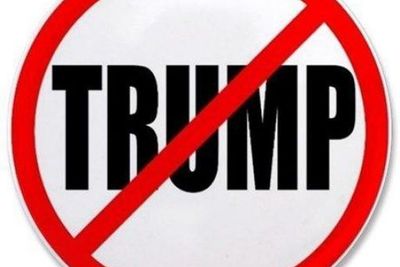
07 March 2017
TRENDING
Let's begin with what the public can know for certain.
President Trump had no evidence on Saturday morning when he smeared his predecessor, President Barack Obama, accusing him of ordering that Trump Tower phones be tapped during the 2016 campaign. Otherwise, the White House would not be scrambling to find out if what he said is true.
Just contemplate the recklessness — the sheer indifference to truth and the moral authority of the American presidency — revealed here: one president baselessly charging criminality by another, all in a childish Twitter rampage.The Times reported on Sunday that the F.B.I. director, James Comey, was so alarmed by Mr. Trump's fact-free claim — which implicitly accused the F.B.I. of breaking the law by wiretapping an American citizen at a president's behest — that he was asking the Justice Department to publicly call it false. In other words, the F.B.I. director was demanding that Justice officially declare the president to be misleading the public.
This is a dangerous moment, which requires Congress and members of this administration to look beyond partisan maneuvering and tend to the health of the democracy itself.In four tweets, capped by one about Arnold Schwarzenegger's "pathetic" ratings on Celebrity Apprentice, Mr. Trump declared as fact a theory he apparently encountered on alt-right websites: "How low has President Obama gone to tapp [sic] my phones during the very sacred election process. This is Nixon/Watergate. Bad (or sick) guy!"
Mr. Obama issued a statement saying that neither he "nor any White House official ever ordered surveillance on any U.S. citizen."
James Clapper, the former director of national intelligence, denied on Sunday that the government had wiretapped Trump Tower before the election, and said he had no knowledge of any effort to do so before Mr. Obama left office.
The background for Mr. Trump's outburst is, of course, the F.B.I.'s investigation of his inner circle's contacts with Russian intelligence. It would be highly unusual for a president to be privy to details of a law enforcement investigation targeting his associates, let alone targeting him. If the inquiry is primarily a counterespionage investigation, however, he might properly have been briefed on it. Not much is known about this inquiry. The mere fact that a new administration is being investigated for potentially colluding with Moscow is uncharted territory.
Mr. Trump is now trying to bootstrap his claims into a congressional investigation of the Obama administration. On Sunday Sean Spicer, his press secretary, issued a statement demanding that congressional intelligence committees, led by Republicans friendly toward Mr. Trump, "determine whether executive branch investigative powers were abused in 2016." Representative Devin Nunes, chairman of the House Permanent Select Committee on Intelligence and a member of Mr. Trump's transition team, quickly made clear he intended to do the president's bidding.
Congressional leaders need to act more forthrightly than that to safeguard public confidence in government. By alleging potential criminality in the nation's highest office, Mr. Trump has tweeted himself into a corner. His accusation is so sensational — so explosive if it turned out to have some basis in fact and so corrosive if not — that Congress has no credible option but to convene a bipartisan select committee to investigate all questions related to Russian interference in the election.
And if Mr. Trump has confidence in his claim, he should have no reluctance about the appointment of an independent counsel to get to the bottom of the Russia affair.
As for those senior officials of this administration who have integrity: It is past time for them to begin asking themselves if they can continue lending their names and exposing their reputations to a president with so little regard for democratic institutions, and for the truth.
This editorial appeared in The New York Times on March 5, 2017 under the title When One President Smears Another.
###
March 7, 2017